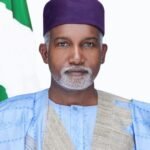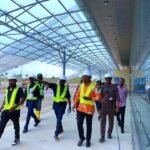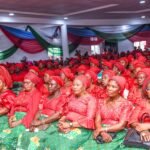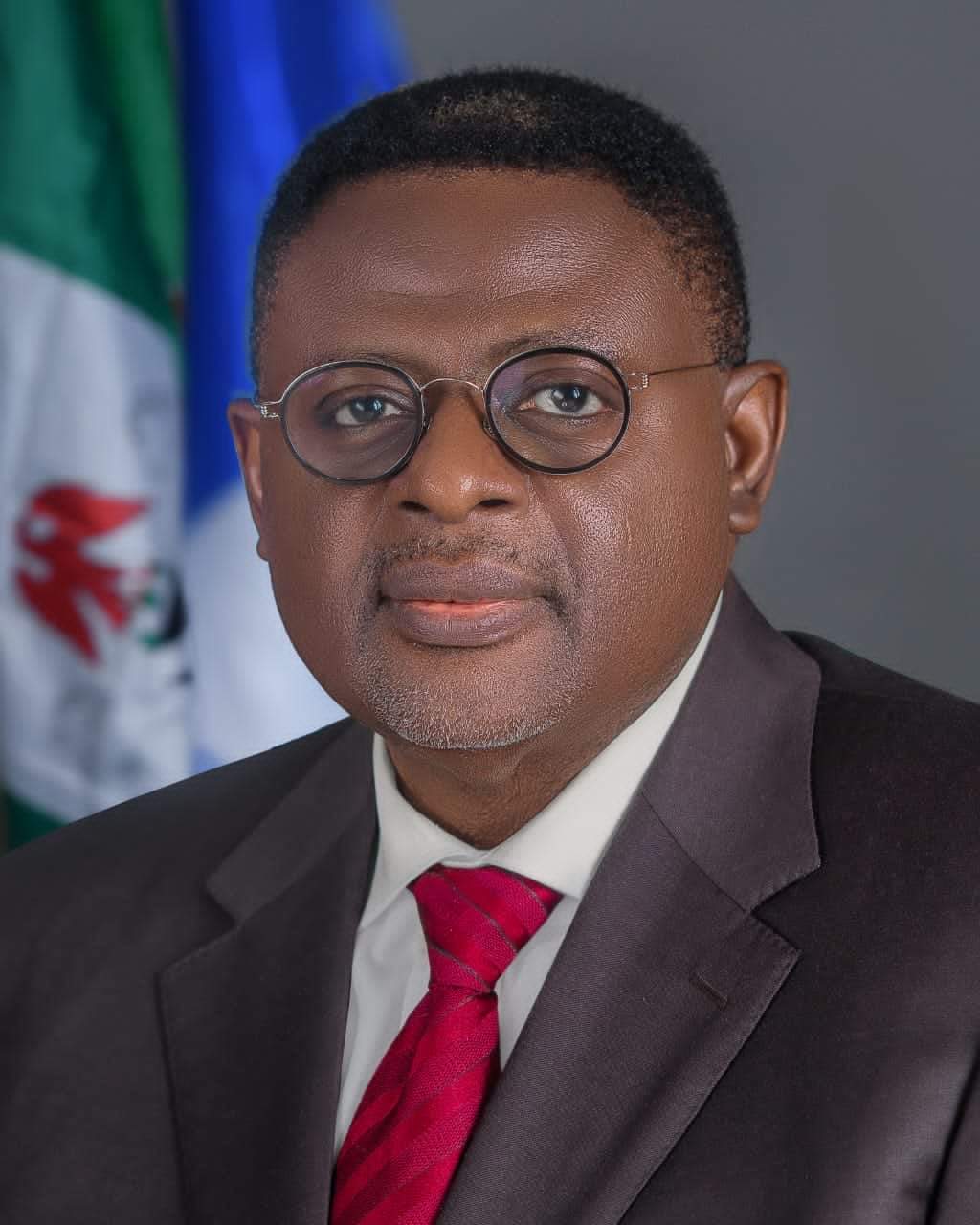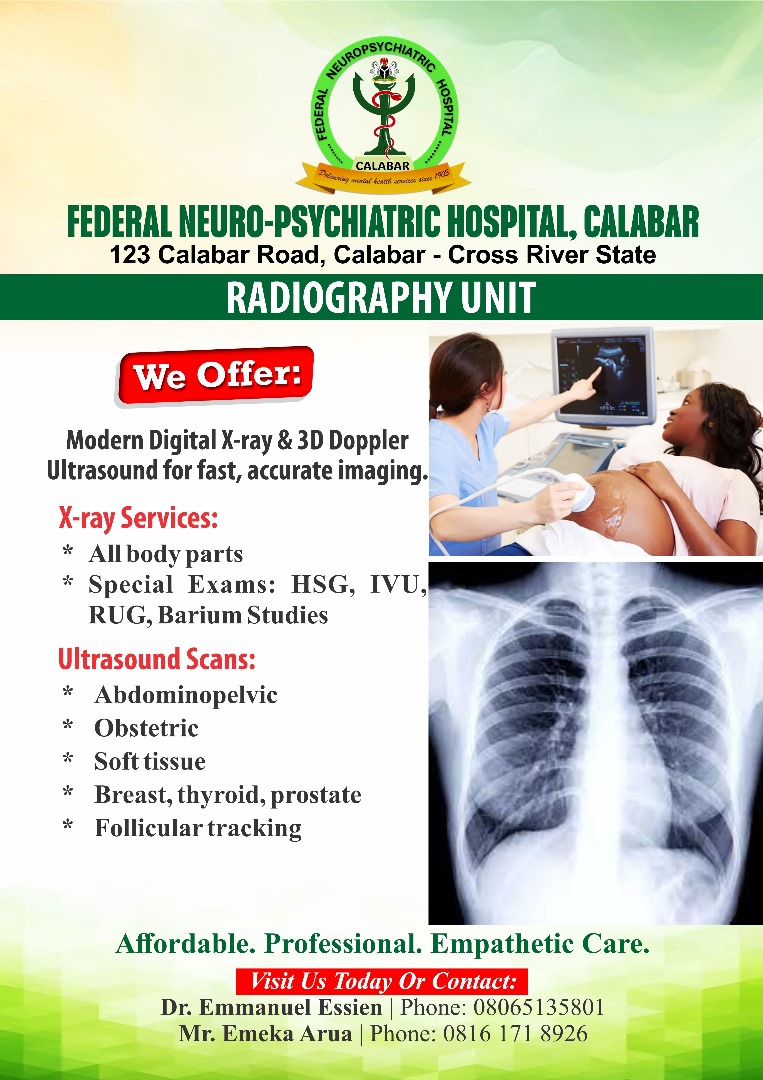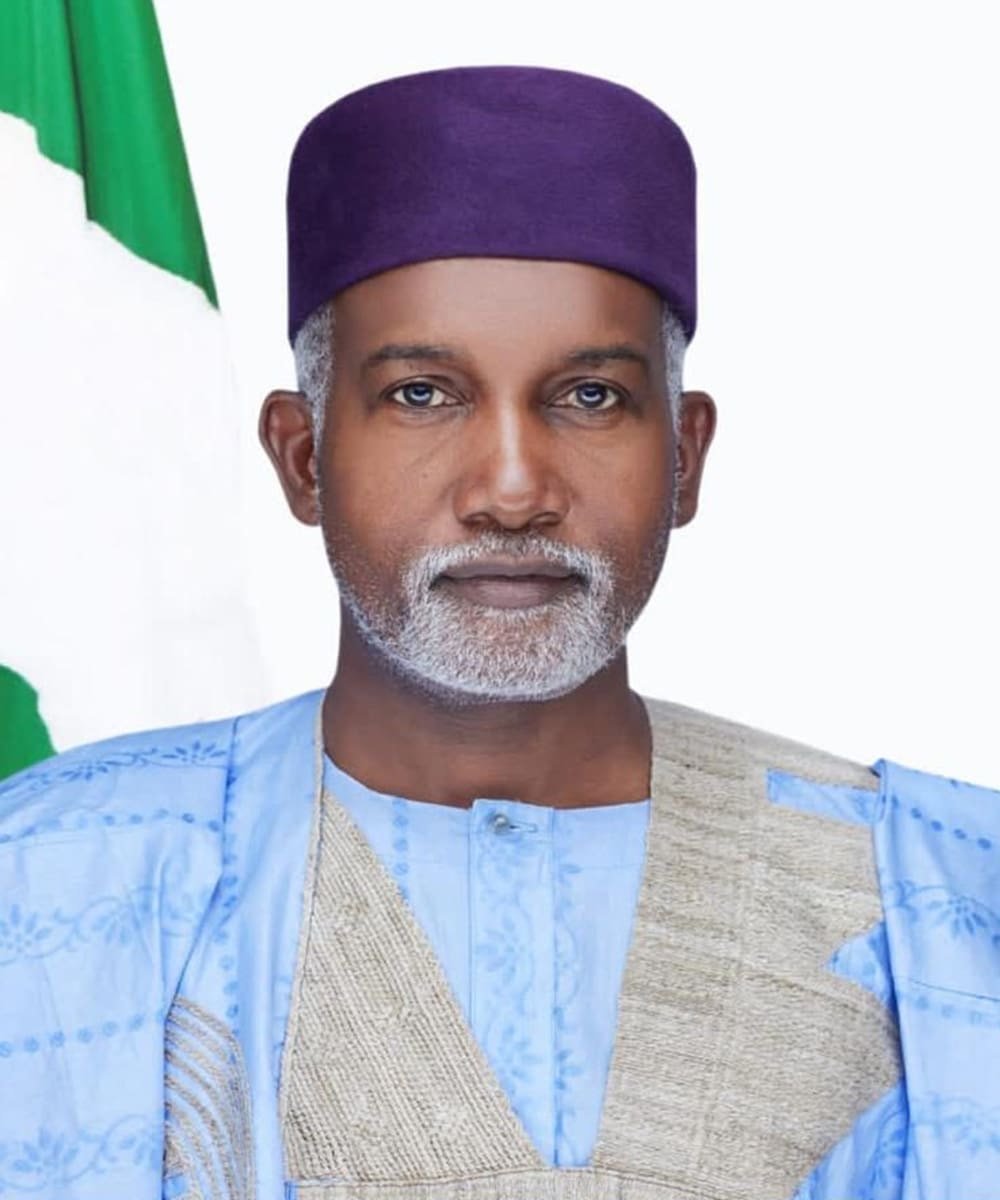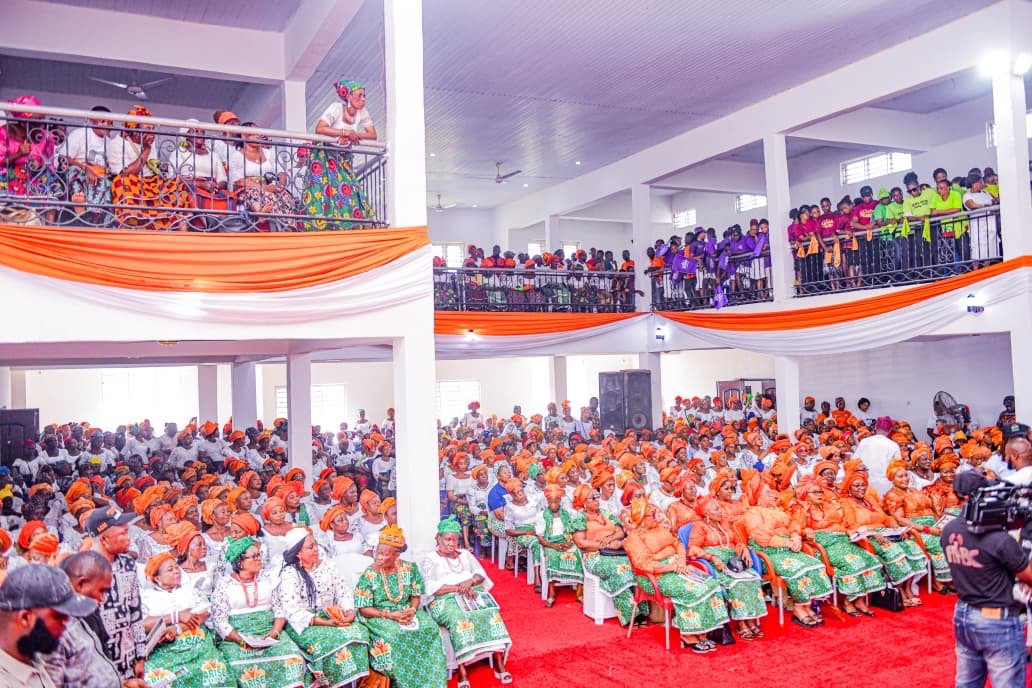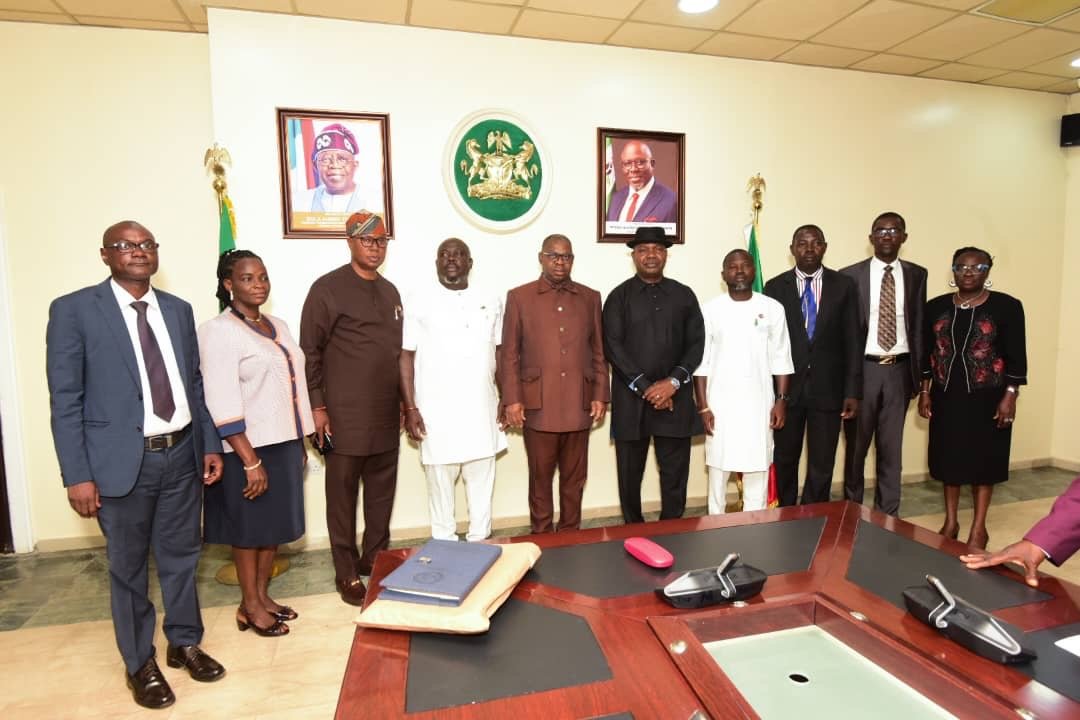Gov. Bassey Otu.
Two Years Of Purposeful Leadership And Shared ProgressA State Broadcast By the Governor of Cross River State, On the Occasion of His Second Year In Office – May 29, 2025.
My Dear Fellow Cross Riverians,
With a heart full of gratitude and a deep sense of responsibility, I extend my warmest greetings to each and every one of you across our beloved state. Today, as we mark the second anniversary of this administration, I am immensely humbled by the honor of your mandate and the trust you placed in me to serve as your Governor. I do not take it for granted. You entrusted me with a great duty and together, we are delivering on the promise of transformation.
In the past two years, we have taken bold steps to unlock the potential of our land and people. Our approach has been strategic, people-centered, and anchored on results as enunciated in our “Peoples First Agenda.” Today, I am delighted to share with you the significant progress we have made across key sectors of our economy.
From the very first day of this administration, we made it clear that agriculture would no longer be treated as a subsistence afterthought. Instead, we envisioned a bold new path—one where agriculture becomes the engine for inclusive growth, industrialization, and job creation. Today, I am pleased to say: we are living that vision.
We began with reforms. Through the Ministry of Agriculture and Irrigation Development, we established a statewide digital soil fertility mapping system, a first of its kind in the south-south region. With this innovation, investors, policymakers, and farmers now operate with precision and confidence. We moved from data to action. Our administration distributed 625,000 sprouted oil palm nuts from NIFOR, 1.2 metric tons of fertilizer, and over 24 metric tons each of rice and maize, alongside 2.8 metric tons of garri—supporting farming communities across all 18 LGAs. Extension services were bolstered through the procurement of 77 motorcycles and the training of 808 farmers in modern cassava practices.
Let me emphasize this: we did not stop at input distribution. We cultivated 600 hectares of cassava, empowered 2,000 smallholder farmers, and introduced a Homestead Farming Programme that has allowed urban and peri-urban families to grow vegetables in their backyards—improving nutrition, saving income, and building food resilience from the ground up.
The Fadama NG-CARES Programme built further on this momentum. Through six targeted value chains—Rice, Cassava, Poultry, Piggery, Aquaculture, and Vegetables—we delivered a wide range of inputs: from day-old chicks to juvenile fish, cassava cuttings, fertilizers, feeds, and vaccines. We rehabilitated farm access roads, distributed agro-processing equipment, multipurpose grinders, collapsible fish tanks, and weaner pigs. These are not gifts; they are investments in our people’s productivity.
Our Cross River State-Wide Irrigation Infrastructure Development Project (CRSWIID) is a game-changer. With expanded irrigation systems, farming is now possible all year round. Dry season no longer means hunger; it now means harvest.
We also scaled up our collaboration with development partners. Under the FGN/NDDC/IFAD LIFE-ND Programme, we established 286 income-generating agribusinesses, trained 2,000 incubatees, and distributed 108 three-wheel tractors. These efforts yielded over 14,800 metric tons of produce and ₦4.74 billion in income—while creating 2,158 jobs for our youth and women. We did not stop at production. We invested in roads, water, and markets: 18.7km of climate-resilient roads, 40 market shops, 21 boreholes, 6 rainwater harvesters, and 1,000 hectares of cleared land. These infrastructures have reduced food loss and transformed community access to markets and services.
LIFE-ND also focused on sustainability and inclusion. We supported 783 farmers with insurance, mobilized over ₦55 million in local savings, and facilitated access to over $180,000 in credit. We formed 102 cooperatives, planted 1,100 trees, and trained thousands on environmental protection, nutrition-sensitive agriculture, and digital extension services.
Our Cross River APPEALS Programme added the final building blocks of value addition. We constructed 14 agro-processing centers, invested ₦507 million in equipment, and built 13.3km of farm access roads with an additional ₦135 million dedicated to power infrastructure. This has enabled women- and youth-led enterprises to scale operations, reduce post-harvest losses, and increase profitability.
My dear people, the message is clear: agriculture in Cross River State is no longer a subsistence routine, it is a thriving economic sector, built on data, driven by infrastructure, and fueled by the passion of our farmers. We are cultivating more land, empowering more farmers, building more roads, and placing more food on the table of every Cross River household. This is not just growth—it is growth with dignity, with opportunity, and with purpose.
Our journey is far from over. The seeds we have planted will continue to yield harvests of hope. Together, we will build a future where no youth is idle, no woman is left behind, and no community is trapped in poverty. With your continued support, Cross River State will not only feed itself, it will feed the nation.
We are making remarkable strides in the tourism sector—an area that is not only the soul of our culture, but now, a growing engine of jobs and business for our people. We have reactivated dormant assets like the Marina Resort, restored its cinema, and brought life back to this iconic hospitality center. Today, local vendors, artisans, and creatives are finding opportunity where there was once silence.
Our world-famous Calabar Carnival has experienced a 42% growth in attendance, injecting over ₦14 billion into our economy and creating jobs for thousands—from costume makers to transport operators, food vendors to dancers. We also welcomed visitors from over 40 countries—reclaiming our place on the global tourism map. Through the Cross River State Tourism Bureau, we empowered 40 hotels and 16 restaurants with financial support, and secured over ₦6.8 billion in private investments. We increased registered hotels by 33%, doubled the number of tour operators, and created new spaces for business and recreation.
We are reviving the Obudu Ranch Resort, reinforcing our position as Nigeria’s tourism capital. Tourist arrivals have surged from 62,000 in 2023 to over 300,000 in 2025. Behind every number is a story of jobs restored, businesses rebuilt, and dreams rekindled. We are building a tourism economy that works for all: for our youth, our cultural practitioners, and every Cross Riverian who believes in the promise of a brighter future. We are turning Cross River into a living experience—vibrant and full of life.
In just two years of our shared journey towards a prosperous, healthy, and well-educated society, we have begun to see the fruits of our collective resolve in the education sector. Today, I stand before you with humility, to share how we are transforming education into a powerful tool for opportunity and progress. We have removed financial barriers for thousands of families. In 2024, we registered over 16,000 indigenous SS3 students for WAEC—with 72.1% securing 5 credits and above. For the 2025 exams, we covered the registration fees of nearly 15,000 more. We are not just easing burdens; we are igniting dreams.
We have digitized our Ministry of Education, modernized administrative processes, and trained teachers to meet today’s challenges. Our partnership with NSSEC empowered 80 English and Mathematics teachers. We facilitated the Federal Government’s takeover of ITM-Ugep—now Federal Polytechnic Ugep—unlocking wider access to tertiary education. At the basic level, our SUBEB projects have touched every corner of this state: 26 new classroom blocks built, 13 rehabilitated, over 9,000 tables and chairs distributed, and boreholes installed to support healthier learning environments. We trained over 700 school heads and officers on digital systems, distributed 700 tablets and 10 laptops, and promoted over 11,000 staff to boost morale.
In secondary education, over 300 schools have been actively monitored for standards, while more than 4,000 teachers have been promoted. Our Secondary Education Board surpassed its revenue target by 134%—an affirmation of an efficient management and prudent reforms. Our Technical Education Board has revitalized STEM learning, recruiting and training teachers, and engaging our youth in science and innovation. We are laying the foundation for a Cross River State where every child, no matter their background, can thrive.
When I assumed office on May 29, 2023, I made a solemn promise—to build a healthcare system that is inclusive, responsive, and resilient. Today, I stand before you, humbled yet excited, to report that together, we are delivering on that promise. We recruited 204 health professionals to bridge staffing gaps and upgraded the devastated Essential Drugs Programme Complex. With a visionary Drug Management Agency Bill and Zipline drone logistics, we are ensuring that essential medicines reach every corner of our state—swiftly, steadily, and reliably.
We are building for the future. A brand-new General Hospital is rising in Ikom, while the Nyahasang Health Centre now offers comprehensive services under our Health Palliative Program. We established a Fistula Centre, commissioned two oxygen plants, and upgraded four Schools of Nursing into accredited Colleges of Nursing Sciences—the first such upgrade in nearly a decade.
Under the Health Palliative Program, pregnant women, children under five, and our elderly receive free healthcare services. Our commitment to primary healthcare is evident across 1,034 facilities, with enhanced immunization, skilled birth attendants, and active community participation.
Cross River is embracing technology as the digital health records, Chemistry Analyzers, and a fully automated health workforce registry are now realities. We’ve battled disease outbreaks with efficiency, strengthened lab systems, and trained thousands of frontline responders.
The Cross River State Health Insurance Agency has expanded access, with over 39,000 BHCPF enrollees and wider secondary care coverage. In our fight against HIV/AIDS, we’ve launched new campaigns, optimized diagnostic sites, and supported early infant diagnosis across the state. We are building a healthcare system that services everyone, a system that protects, empowers, and uplifts. Let us stay the course. The dawn has come. Health is no longer a privilege; it is a right, and in Cross River, it is becoming a reality.
At the inception of this administration, we envisioned a Cross River where land would no longer be a dormant asset but a powerful tool for prosperity, urban growth, and inclusive development. We have turned that vision into reality. Through a coordinated effort involving the Ministry of Lands, the Ministry of Housing, CR-GIA, CROSPIL, and MEDA, we have brought transparency, efficiency, and new hope to land governance. We acquired and prepared thousands of hectares of land across the state for housing, agriculture, industry, and healthcare. From Odukpani to Adiabo, from Ogoja to Ikom, these parcels are being transformed into homes, farms, factories, and hospitals, creating jobs, enhancing food security, and meeting the needs of our growing population.
We recovered encroached government lands, reclaimed public spaces, and improved land valuation and revenue systems. Our Geographic Information Agency (CR-GIA) has been revitalized, with the production of Certificates of Occupancy resumed after years of dormancy. Over 7,500 land files have been digitized, and our Land Information System is now powering secure, real-time transactions.
CROSPIL has been reborn, recapitalized, restructured, and results-driven. We’ve delivered 200 housing units and are building over 400 more. We’ve finalized land acquisition in multiple LGAs, and our estate management system now operates with 90% greater efficiency. Through MEDA, we’re ensuring that land and housing reforms translate into economic empowerment. We’ve trained over 2,500 entrepreneurs, registered 1,000 small businesses, and disbursed grants and loans worth over ₦1.2 billion to MSMEs and women-led businesses. Young people are being equipped with digital skills, while retirees are being retooled for post-service enterprise. We are building communities, unlocking dreams, and laying the foundation for a prosperous, well-planned Cross River State.
My promise remains firm: under our watch, land will serve majority of the people, not the privileged few. Therefore, we are not just building houses—we are building a future.
In the last two years, we have transformed infrastructure into a catalyst for equity and prosperity across our beloved state. From Obot Etubom in Odukpani to the farthest reaches of Bekwarra, light has returned to once-forgotten communities. Through the State Electrification Agency and the Ministry of Power, electricity has been restored, 270 solar-powered streetlights have been installed in Yakurr and Ogoja, and 14 new transformers have stabilized supply in Calabar. These are not just wires and poles—they are renewed lifelines for businesses, schools, and homes.
Our road infrastructure tells a similar story of transformation. Over 73 kilometers of roads have been constructed or rehabilitated, including key routes in Calabar South, Ugep, Ikom, and the Akhreha–Okpoku Bridge in Yala. These roads now link farmers to markets, students to schools, and families to essential services.
We did not stop at roads and power. We revived the Calabar Water Treatment Plant after eight years of dormancy and reactivated water outstations in Itigidi, Obubra, and beyond. Over 64,000 cubic meters of potable water have been delivered to Calabar, Ikom, and Ogoja. Through RUWATSSA, we provided solar-powered boreholes, rehabilitated 151 hand pumps, and built over 10,000 household toilets, bringing clean water and dignity to our rural communities.
We’ve also secured border communities through BORDERCOM, delivering projects such as new schools, health centers, markets, and a divisional police headquarters—all aimed at boosting security, education, and local economies.
Infrastructure, for us, is not about concrete and cables; it is about building hope, improving lives, and giving every Cross Riverian a fair chance to thrive. Let me assure you: we will not relent. Together, we will build not only a more connected Cross River State, but a stronger and more progressive one.
When we began this journey two years ago, we made a bold promise to place environmental sustainability at the heart of governance. Today, we are not here to merely account, but to celebrate how far we’ve come. We have tackled environmental challenges head-on. Through strategic desilting of critical drains in Calabar Metropolis, we’ve drastically reduced flood risks, cleared stagnant water, and restored dignity to neighborhoods. Our green verges and open spaces in Calabar, Odukpani, and Creek Town have been revived, bringing ecological balance and beauty back to our urban corridors.
Our participation at COP28 was not merely symbolic—it affirmed Cross River’s leadership in climate action in Nigeria and globally. Our Department of Urban Beautification has turned neglected intersections into landscaped marvels—Ndidem Usang Iso, Murtala Mohammed Highway, and others are now symbols of a cleaner, safer city. Over 300 hanging bins were installed, and sanitation workers were empowered with modern tools.
In Ikom and Ugep, daily street sweeping, drain clearing, and tree planting, rising from 2,200 to 2,700 in Ugep alone, have not only beautified our towns but improved public health and created climate buffers. Our renewed environmental drive also extends to natural resource governance. With the reactivation of MIREMCO and the inauguration of an anti-illegal mining committee, we are enforcing mining regulations and attracting indigenous investors. Our 125-unit limestone deposit now represents not just wealth, but a promise of jobs and industrial growth.
These achievements are not mere statistics, they are proof that governance can be green, humane, and people-centered. They are evidence that the Cross River we are building is one where cities are cleaner, streets are safer, and nature has a place in our future.
This is our shared progress. This is our Cross River. And together, we will go even further. In just two years, our administration has transformed governance in Cross River State by strengthening institutions and restoring professionalism in public service. Through the Institutional reforms, we have prioritized transparency, capacity building, and citizens’ welfare. Hundreds of civil servants were assessed, trained, and properly documented, while streamlined retirement and death benefit processes brought dignity to public service.
We released over N10 billion in gratuities, easing the burden on retirees and rekindling trust in government. Government lodges and residences were renovated across senatorial districts, while rapid-speed boats were procured to enhance inter-agency security collaboration. Legal reforms under my watch resulted in the drafting of key Executive Bills and the resolution of numerous longstanding cases, deepening the rule of law and justice access.
We also expanded educational opportunities by establishing new tertiary institutions and coordinated gratuity payments across local governments. With bold reforms and people-focused governance, we are laying the foundation for a transparent, responsive, and effective public service that truly works for every Cross Riverian. This is the dawn of a new era.
For the first time in our state’s history, we have launched a comprehensive Development Plan, reintroduced strategic planning across MDAs, and domesticated the National Monitoring & Evaluation Policy—all aimed at institutionalizing accountability.
Our partnerships with key development actors like UNICEF, FMBEP, and CS SUN have delivered measurable impact. Stunting in children has dropped from 25% to under 2%, thanks to strategic nutrition programs and innovative tools like electronic MUAC, while extended maternity leave for civil servant mothers affirms our commitment to family welfare.
We are building a data-driven future. The Cross River State Bureau of Statistics has produced consecutive Statistical Yearbooks, commenced GDP estimation, and established a centralized Data Bank, enabling smarter, evidence-based governance. Our collaboration with international partners through MIDC has unlocked over ₦35.4 billion in development funding—far exceeding projections—and earned us top rankings in national programs like NG-CARES.
From rehabilitating critical infrastructure to overseeing the construction of over 30 roads and advancing projects like the Obudu Cargo Airport, our investments in capital development are positioning Cross River as a hub of progress in the comity of states.
Today, I see myself, not just as your Governor, but as a fellow citizen privileged to serve at a time like this. Under our “People First” governance philosophy, social welfare in Cross River has moved from scattered programs to a structured, compassionate system that places human dignity at the heart of every intervention.
We have brought social services closer to the people—women, children, the elderly, youth, persons with disabilities, and our most economically vulnerable are no longer on the margins. Through the Ministry of Women Affairs, Cross River became a national leader in gender advocacy. We hosted the National Council on Women Affairs for the first time, decentralized key gender observances to the LGAs, and launched Nigeria’s first International Day of the Boy Child, setting a new standard for inclusive gender programming.
Our fight against gender-based violence is stronger than ever, with a statewide GBV Task Force and survivor support services now operational in both rural and urban areas.
Through the Ministry of Wealth Creation, over 8,000 NANO businesses have been trained and empowered. Thousands of our people have received capital support and starter packs, fueling rural economies and household incomes. We are nurturing an entrepreneurial ecosystem with the first MSME Council in our state’s history, earning Cross River the Best MSME-Friendly Governor award in the South-South.
Our youth are not left behind. With vocational training for over 3,000 young people, digital skills programs at Tinapa, and national representation through the Army, Customs, and agriculture initiatives, our future is in good hands.
We have renovated orphanages, supported over 1,000 vulnerable persons with financial aid, and launched training for social workers to ensure our services reach even the most remote communities. Wheelchairs have been distributed, children treated, and senior citizens honored because every life matters.
In partnership with humanitarian agencies, we have brought relief to displaced families and built resilience among widows and orphans. From policy to practice, from words to action, we are building a society where empowerment and prosperity are not privileges, but rights.
From Obanliku to Bakassi, from Akamkpa to Yala, the spirit of transformation is alive. Local Council secretariats have been renovated. Internal roads are being expanded. Bridges are now linking previously isolated communities. In Ogoja, we reconstructed the main entrance gate of the council secretariat, while in Calabar Municipality, we remodeled the secretariat gate, small touches with big impacts on governance and dignity. In Obubra and Abi, market renovations and the construction of boreholes and bridges have enhanced commerce and mobility. We are restoring life to our local economies.
Our push for water and energy access is unmatched. In Akamkpa, Ogoja, and Obanliku, solar-powered boreholes now provide clean water where it was once a luxury. We have lit up our communities with solar streetlights and repaired generators to ensure uninterrupted services.
Healthcare delivery has received a decisive boost. We have renovated health centers in Calabar South, Odukpani, and Yakurr, constructed HIV centers, and deployed ambulances in Ogoja and Bekwarra. Sanitation projects in Akpabuyo are improving urban hygiene, protecting our families.
Our investment in the youth is not just a policy—it’s a mission. From providing exercise books and JAMB fees in Calabar Municipal to building NYSC lodges and youth centers, we are empowering the next generation. In Yakurr and Abi, we’ve launched skills acquisition programs and distributed farming inputs. Education is not a privilege—it is a right—and we are securing it.
We are strengthening institutions at the grassroots. From legislative chambers in Bekwarra to traditional councils in Obanliku, we are deepening democracy. In Calabar Municipal, new internal revenue strategies are enhancing accountability and financial sustainability.
Our commitment to security is unwavering. We have rehabilitated police stations, deployed security patrol vans, and engaged communities through traditional rulers and youth groups. We are not only building physical structures—we are rebuilding trust.
Our economy is growing from the bottom up. Through agricultural empowerment, distributing oil palm seedlings, fertilizers, and modernizing markets—we are returning pride to our farmers and prosperity to our rural communities. The carnival village and international park in Ogoja are tapping into tourism as a new frontier of opportunity.
Environmental protection remains a top priority. In Akpabuyo and Obudu, refuse is being cleared. In Odukpani, erosion control measures are protecting homes and livelihoods. Roundabouts in Calabar Municipal and upgrades in Ogoja are beautifying our state and elevating our civic pride.
My fellow Cross Riverians, in just two years, we have recorded progress that speaks for itself. This is what happens when leadership listens. This is what happens when government works. We have laid a solid foundation for a more prosperous, more united, and more resilient Cross River State.
We shall continue on this path. Because when the people thrive, the state stands strong, when the people are empowered, the future is secure.
My Dear Fellow Cross Riverians,, these achievements are not mine alone. They are ours. They are the results of your belief, your patience, and your partnership. We have not solved every problem—but we have built a clear roadmap for growth and inclusiveness. We have moved from planning to implementation, and from promises to proof.
The next two years hold even greater promise. We will consolidate on our gains, drive massive investments in rural development, scale up innovation hubs, and double down on wealth creation and youth empowerment. The future of Cross River is bright and together, we will shine even brighter.
I thank you, my dear people, for your continued support, prayers, and sacrifice. Let us remain united, optimistic, and steadfast. This journey is ours. The glory is God’s and victory will be ours too.

